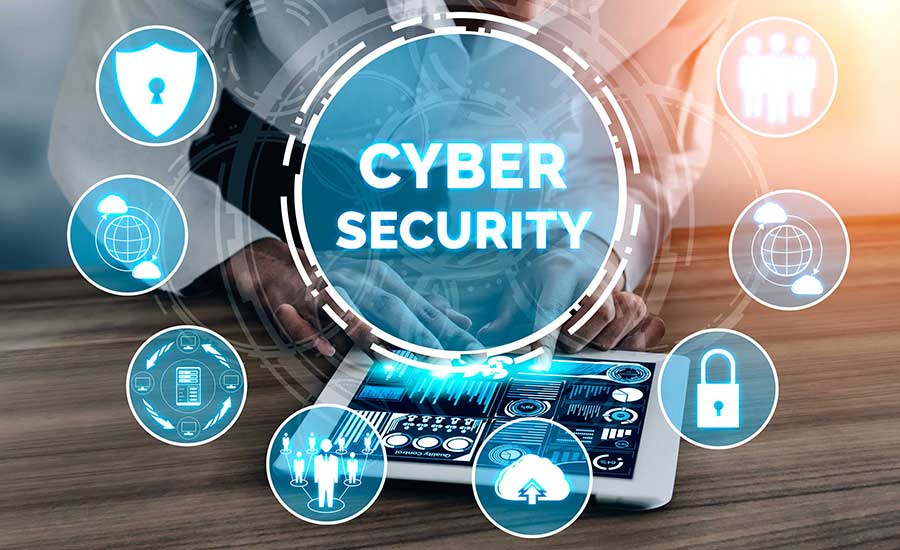7 Essential Cybersecurity Tips to Keep Your Online Presence Safe
In today’s digital age, ensuring the security of your online presence is of utmost importance. With the increasing number of cyber threats and malicious activities, it has become crucial to adopt proactive measures to protect your personal information and maintain a safe online environment. This article provides seven essential cybersecurity tips that can help you safeguard your online presence effectively.
Table of Contents
Introduction: The Significance of Cybersecurity
Strengthen Your Passwords
Enable Two-Factor Authentication (2FA)
Keep Your Software Up to Date
Be Cautious of Phishing Attempts
Use a Virtual Private Network (VPN)
Regularly Back Up Your Data
Conclusion
Frequently Asked Questions (FAQs)
-
- Introduction: The Significance of Cybersecurity
In our interconnected world, where we rely heavily on technology, cybersecurity plays a crucial role in protecting our sensitive data. Cybercriminals are constantly evolving their techniques to exploit vulnerabilities and gain unauthorized access to personal information. By implementing effective cybersecurity practices, you can significantly reduce the risk of falling victim to online threats.
- Introduction: The Significance of Cybersecurity
-
- Strengthen Your Passwords
One of the simplest yet most effective ways to enhance your online security is by using strong passwords. Avoid using common phrases, predictable patterns, or easily guessable information like your birthdate or pet’s name. Instead, generate intricate passwords that consist of a combination of uppercase and lowercase letters, numerals, and special characters. Additionally, it’s essential to use unique passwords for each online account to prevent a single breach from compromising multiple accounts.
- Strengthen Your Passwords
-
- Enable Two-Factor Authentication (2FA). Two-Factor Authentication, also known as 2FA, enhances the security of your online accounts by incorporating an additional layer of protection. By enabling 2FA, you ensure that even if someone manages to obtain your password, they still need a second factor, such as a temporary code sent to your phone or generated by an authentication app, to gain access. This additional step provides an added level of protection against unauthorized access and minimizes the risk of data breaches.
-
- Keep Your Software Up to Date
Software updates often include critical security patches that address known vulnerabilities. It is vital to regularly update your operating system, web browsers, antivirus software, and other applications to ensure that you have the latest security enhancements. Set up automatic updates whenever possible to streamline the process and reduce the risk of missing important patches.
- Keep Your Software Up to Date
-
- Be Cautious of Phishing Attempts
Phishing is a common method used by cybercriminals to trick individuals into revealing sensitive information. They often masquerade as legitimate organizations through emails, messages, or websites to deceive users. Be wary of unsolicited communications and avoid clicking on suspicious links or downloading attachments from unknown sources. Verify the authenticity of any request before providing personal information or login credentials.
- Be Cautious of Phishing Attempts
-
- Use a Virtual Private Network (VPN)
When accessing the internet, especially on public Wi-Fi networks, using a Virtual Private Network (VPN) adds an extra layer of security. A VPN encrypts your internet connection, making it difficult for attackers to intercept your data. It masks your IP address and provides a secure tunnel for your online activities, protecting your privacy and ensuring that your information remains confidential.
- Use a Virtual Private Network (VPN)
-
- Regularly Back Up Your Data
Data loss can occur due to various reasons, including malware attacks, hardware failures, or accidental deletion. Regularly backing up your data is crucial to mitigate the impact of such incidents. Choose a reliable backup solution and schedule automatic backups to ensure that your important files, documents, and photos are securely stored. In the event of a cyber attack or data loss, you can restore your information and minimize the potential damage.
- Regularly Back Up Your Data
Conclusion
As our lives become increasingly intertwined with the digital realm, safeguarding our online presence has become a paramount concern. By implementing the seven essential cybersecurity tips mentioned above, you can significantly reduce the risk of falling victim to cyber threats. Remember to use strong and unique passwords, enable two-factor authentication, keep your software up to date, be cautious of phishing attempts, use a VPN, and regularly back up your data. By prioritizing your online security, you can enjoy a safer and more secure digital experience.
Frequently Asked Questions (FAQs)
Q: How often should I change my passwords?
A: It is recommended to change your passwords every three to six months, or immediately if you suspect any compromise.
Q: Are free antivirus programs effective?
A: While free antivirus programs offer basic protection, paid antivirus solutions generally provide more advanced features and comprehensive security.
Q: Can I use the same password for multiple accounts if it’s strong?
A: It’s best to use unique passwords for each account to minimize the impact of a potential breach. Even strong passwords can be compromised.
Q: What should I do if I receive a suspicious email?
A: If you receive a suspicious email, avoid clicking on any links or providing personal information. Report the email as spam or phishing and delete it.
Q: Why is regular data backup important?
A: Regular data backup ensures that you have a secure copy of your important files in case of accidental deletion, hardware failure, or ransomware attacks.


Very Good Tech news
THANKS FOR YOUR FEED BACK